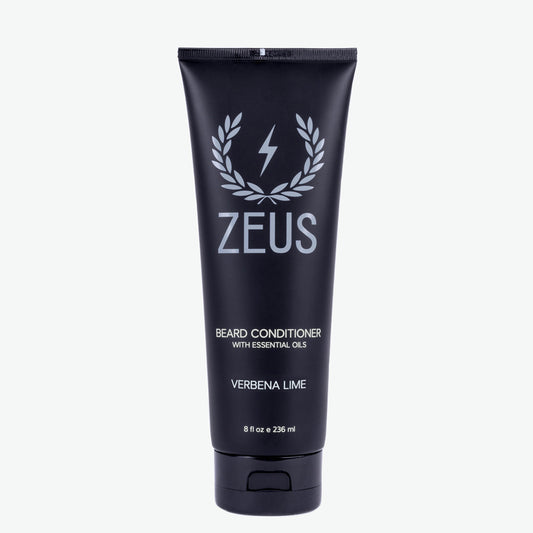November marks the beginning of holiday season, the merry time of tasty treats and giving gifts. However, the holidays can also bring on extra stress, which isn't too jolly for your body or hair. During "No Shave November," stress management is just as important for your beard growth as your diet and routine. How does stress affect the body and harm hair? First off, stress isn't just a mental irritant. It also weakens your immune system, harms testosterone and sperm production and increases cortisol levels, which can lead to hair loss.
Unfortunately, stress isn't something we can just cut clean from our lives entirely. However, here at Zeus Beard, we detailed below how stress affects the body and what you can do to manage it more effectively.
What causes stress?
Stress is your body's defense against annoying, challenging or dangerous tasks. Stress is often associated with a difficult upcoming exam or public speech, issues at work, a death in the family or an argument with a loved one. However, stress can also be due to an exciting event like an upcoming birth or wedding, or in this case the holidays.
Stress is intended to be in short spurts, characterized by a spike in adrenaline to cope with the challenge or event you are facing. However, when stress isn't properly dealt with, it can have negative long-term effects.
Psychological effects of stress
The first place you feel stress is in your mood. Stress can make you feel anxious, irritable, overwhelmed and sad.
Short-term, these factors often cause a lack of motivation and low energy. This can cause you to procrastinate or be unable to complete tasks to your full ability.
Long-term, stress can cause depressed feelings of inadequacy or worthlessness. This can make daily tasks and interacting with others very difficult.
Physical effects of stress
Stress also negatively affects your body. It can cause muscle cramps, headaches, chest pain, hair loss and alter your sex drive. In addition, stress weakens your immune system, making you more susceptible to disease and infection.
One reason is that when you're stressed out, your body produces extra cortisol. In regular amounts, the cortisol hormone isn't a bad thing. In fact, it acts as an alarm for your body to regulate your mood and fear.
However, in excess amounts, cortisol can cause weight gain, muscle weakness, disease and hair loss. It also easily halts beard growth in its tracks. After all, when there is more cortisol present, there is less testosterone and DHT present, which are both necessary hormones in hair growth.
Also concerning hair issues, Telogen Effluvium is a stress-related condition that causes temporary hair loss on the top of your head. However, more common in males is alopecia areata, an autoimmune illness also associated with stress that causes the immune system to attack hair follicles. More specific to beard growth, the subsection alopecia barbae affects the facial hair of males typically between their 30s and 40s.
Social effects of stress
Being extra stressed is also bad for your personal life, often causing antisocial and isolating attitudes. This can also lead to damaging behaviors that are bad for your health and hair growth like engaging in drug or alcohol abuse.
Long-term, these communication and interaction issues and self-destructive coping mechanisms can harm existing relationships and make the development of new relationships difficult.
How do I manage my stress?
Here are some more tips from our Zeus experts on how to manage stress.
Increase testosterone
Increasing your testosterone levels can help with beard growth. Luckily, this doesn't mean taking some sort of supplement or steroid. You can increase your testosterone levels naturally in three easy steps.
First, when you hit the gym, opt for heavier weights and less reps instead of the lighter weights you can throw around easily. Engaging in exercises like squats and bench presses during two to three of your workouts during the week will offer a good testosterone boost.
While the holidays can mean extra moving around, don't trade away your essential sleep hours. Some studies show that testosterone levels doubled when men went from sleeping four hours a night to eight hours.
Luckily, if you're setting an early sleeping schedule, it's likely you aren't staying up drinking all night at the bar. You don't have to completely give up alcohol to lead a healthy lifestyle. However, cutting back and avoiding binge drinking will help keep your testosterone levels up.
Decrease cortisol
Decreasing your cortisol levels simply means finding ways to de-stress. Keep reading to check out activities that can help you relax.Activities to help you de-stress
Actively making an effort to de-stress will pay off during the holiday season and in the long run. Try these tips to start relaxing the right way.
TRY YOGA
No, yoga isn't just for women. In fact, yoga is so much more than mild stretching.
It helps build and tone muscle, increase agility and balance and allows you to relax.
In addition to the body benefits yoga offers, it also includes useful breathing and meditation exercises.
When breathing deeply during yoga's pranayama exercise, you activate your parasympathetic nervous system.
This helps calm your stress response and reverses your cortisol and adrenaline levels back to normal.
GET A MASSAGE
As we enter the fall and winter holiday months, you may feel the effects of the colder weather on your muscles and joints.
Massage is another great way to calm your achy body.
Taking an hour of your day to have someone relieve your aches and pains will relax your mind and body.
Moreover, massage battles stress by restoring your circulation to its normal levels and improving your digestive and immune systems.
One study from Sweden's Umea University Nursing Department, shows that subjects who were massaged showed decreased cortisol levels in their saliva afterwards.
UNPLUG AND RECONNECT
Lastly, try skipping the section of your day dedicated to scrolling your social media. Instead, head outside and connect with nature for awhile.
This not only gives your thumbs and eyes a break from catering to a small screen, but also calls for you to be more active.
In addition, getting some sun outdoors provides the daily vitamin D you need.
And it goes without saying, walking through a beautiful natural location instantly offers relaxation and peace.
Plan it out
Stress also comes from a lack of planning and proper organization. To clear your head, write down clear goals for yourself. Limit yourself to two to three major things you want to focus on each day and four to five long-term goals you want to accomplish in the month or year.Writing down your goals instead of keeping them in your head helps remind and hold you accountable. While you're working on your self-improvement, remember not to be too hard on yourself! Think of your goal setting as a guideline not a death sentence.
And, celebrate your small accomplishments too. Every step forward is a step in the right direction.








